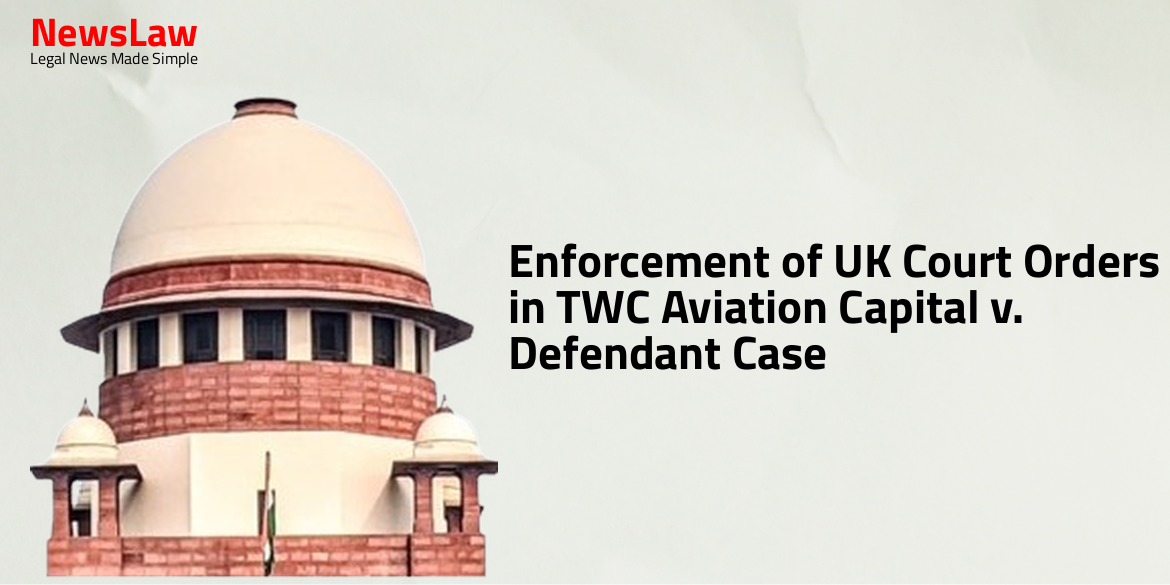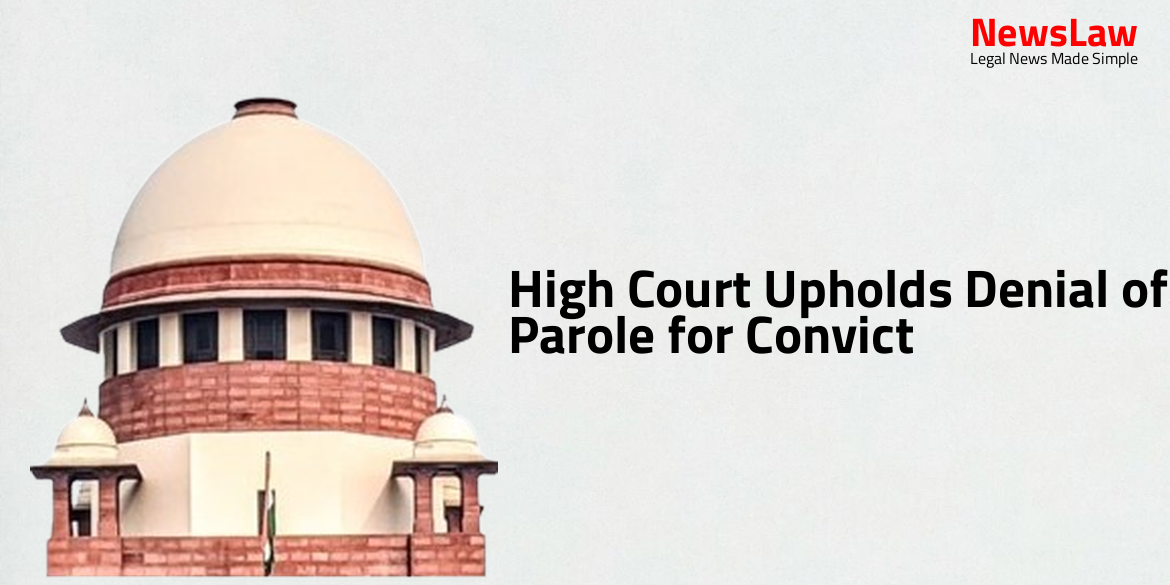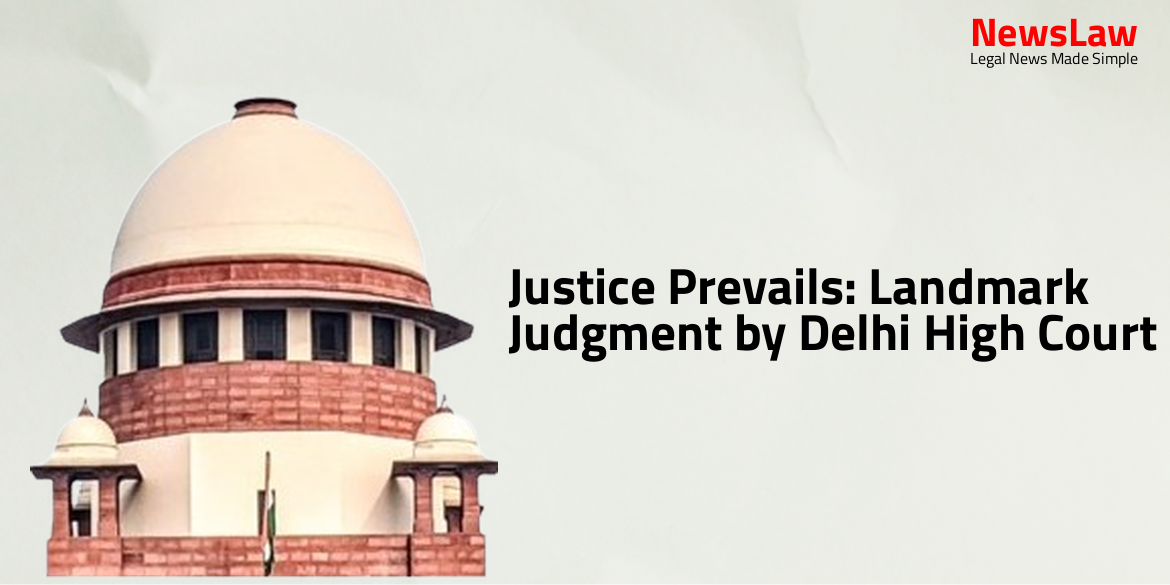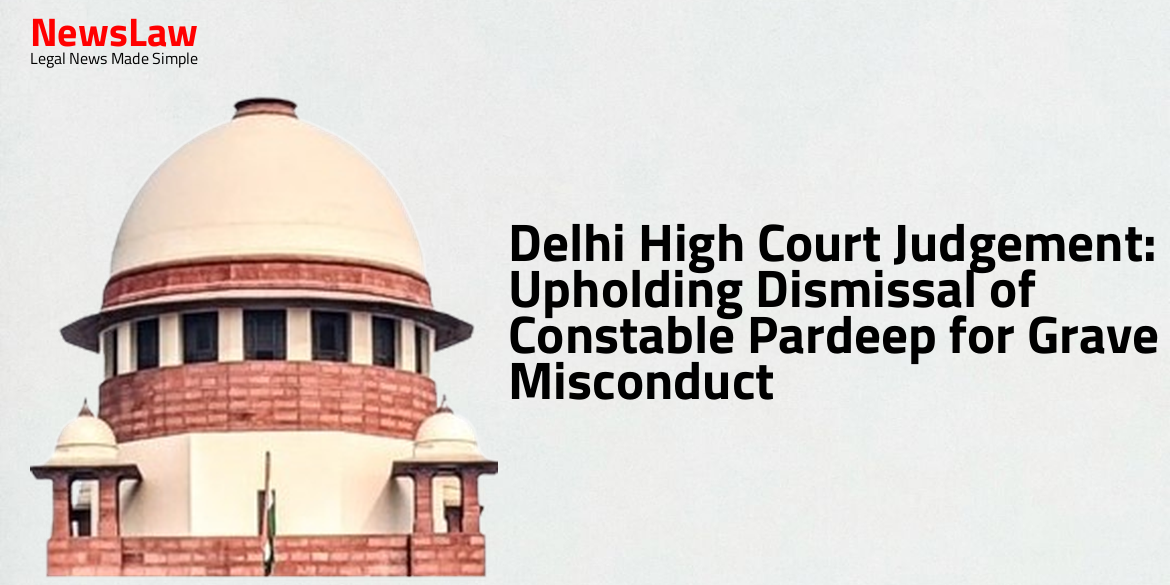In a recent ruling by the Delhi High Court, the enforcement of UK Court orders has been addressed in the case of TWC Aviation Capital versus the Defendant. The Court made significant decisions regarding the protection of aircraft assets and the rights of the parties involved. Stay updated on this crucial legal development!
Facts
- Plaintiff, TWC Aviation Capital, claims ownership of two Boeing 737-800 Aircrafts along with three Aircraft Engines and another engine.
- Defendant ordered to deliver one Boeing 737-8K9 aircraft with serial number MSN 34399 and registration VT-SXB to Plaintiff’s possession at Delhi’s Indira Gandhi International Airport.
- Defendant prohibited from using, operating, or disposing of the specified aircraft and engines without permission.
- Defendant to deliver technical and operational records of the aircraft and engines to Plaintiff.
- Plaintiff authorized to park, store, and maintain the aircraft and engines as necessary.
- Provisions made for routine cleaning, inspections, tests, repairs, and maintenance of the aircraft and engines during storage.
- If Defendant changes solicitors, Plaintiff permitted to serve documents via email or fax.
- Plaintiff authorized to provide a copy of the judgment to relevant authorities in India.
Analysis
- The Defendant failed to comply with UK Court orders restraining them from using the aircraft engines without permission.
- The Plaintiff seeks to enforce UK Court orders through the present suit.
- The Plaintiff argues that UK Court orders are enforceable in India under Section 13 read with Section 44A of CPC.
- The Defendant has had opportunities to clear dues but failed to comply with payment arrangements.
- The Court directed inspection of aircraft frames and engines, with Plaintiff’s officials acting as receivers.
- The Defendant’s use of aircraft frames and engines without payment may cause irreparable harm to the Plaintiff.
- The Court finds the UK Court orders prima facie enforceable in these proceedings.
- The balance of convenience lies in favor of the Plaintiff due to the Defendant’s non-compliance with payment terms.
- The Defendant proposed to make weekly payments but unable to pay upfront sum, leading to further deliberation.
- The appellant argues that the decree is not executable as it amounts to a decree.
- Section 44-A CPC pertains to execution of decrees from courts in reciprocating territories.
- The definition of ‘decree’ under Section 2(2) CPC is discussed, emphasizing that it conclusively determines the rights of the parties.
- The Supreme Court case of Alcon Electronics Private Limited is cited, where it was held that a decision from a foreign court, after following due process, can be considered executable as a decree.
- Based on the principles of natural justice and the conclusive determination of the issue with regard to costs by the Court in England, the appellant’s application is deemed executable as a decree.
- A foreign judgment shall be conclusive on matters directly adjudicated upon between the same parties or parties claiming under them, except in certain circumstances.
- The exceptions include situations where the judgment was not pronounced by a competent court, not given on the merits, based on an incorrect view of international law, against natural justice, obtained by fraud, or sustains a claim that breaches Indian law.
- Enforcement of foreign judgments is not enforceable in a suit under Section 13, but an execution petition can be filed under Section 44A of the CPC.
- Separating the engines from the aircrafts may not be permissible.
- There is substantial deterioration in the aircraft frames and engines as per the inspection given to the Plaintiff.
- Using the aircraft frames and aircraft engines separately would significantly reduce the value of the aircrafts for the Plaintiff.
- The Defendant’s financial position and the total dues claimed by the Plaintiff make it difficult for the Defendant to separate engines and use them separately.
- The Defendant to be given an opportunity to file a written statement considering the payment deadline of Rs. 20 crores by the end of May.
- Sufficient damage has already been caused by the separation of engines from aircrafts.
Decision
- Defendant has not paid the dues to the Plaintiff
- Aircrafts and engines along with relevant records to be handed over to the Plaintiff by 28th May, 2024
- Short reply to be filed within four weeks
- Usage report of aircrafts/engines since termination date to be furnished to Plaintiff within two weeks
- Status of engines not to be changed before next court date
- Mr. Sethi to seek instructions on compensation/return of engines by next hearing
Case Title: TWC AVIATION CAPITAL LIMITED Vs. SPICEJET LIMITED (2024:DHC:4015)
Case Number: CS(COMM)-285/2024



